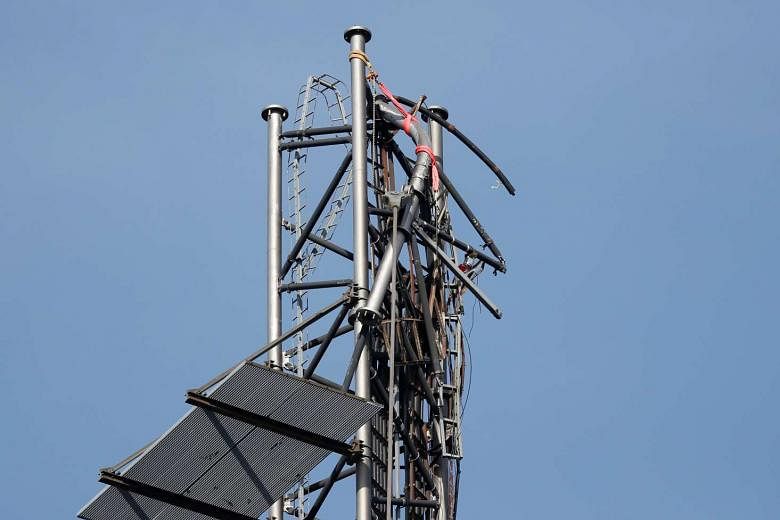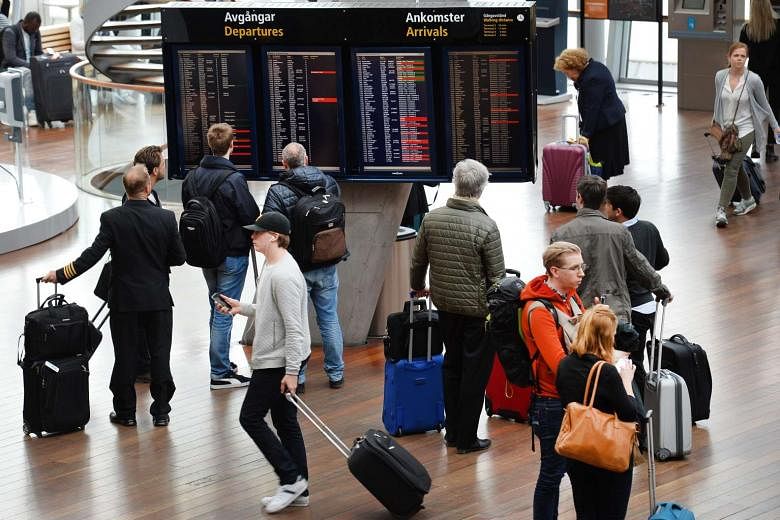STOCKHOLM (Reuters) - Sweden's civil emergency agency held a crisis meeting on Friday (May 20) to discuss a number of cases of suspected sabotage involving telecommunications masts and a computer outage that grounded air traffic across much of the country.
The incidents have reignited fears of foreign spies and the readiness of Sweden's depleted security services to confront them in a country on the frontline of increased Western tensions with Russia.
The Civil Contingencies Agency (MSB) has said it has no grounds so far to believe the various cases are related but its decision to hold a "national coordination" meeting - confirmed by a spokesman - highlights the growing sense of public unease prompted by the incidents.
Two telecoms masts have been damaged in the last few weeks, and on Thursday a computer glitch grounded planes across much of Sweden, while technical problems knocked out Swedish railways'booking system.
The spate of unexplained technical problems and apparent attempts to damage telecommunications equipment have fanned fears that Sweden's infrastructure is being tested by foreign security services.
Professor Wilhelm Agrell, professor in intelligence analysis at Lund University, hinted at a possible Russian link. "The scenario resembles the picture of so-called hybrid warfare which has developed since the Crimea operation in 2014," he told daily Aftonbladet, referring to Russian forces' seizure of Ukraine's Black Sea peninsula two years ago.
The Russian Foreign Ministry has not responded to Reuters' requests for comments on allegations of possible Russian involvement made by Swedish media and academics.
Sweden has for years seen Russia as its biggest geopolitical threat. Only last month, Russia's Foreign Ministry warned of consequences if Sweden joined Nato, while Swedish media have carried reports of the nation's security services warning about Russian agents spying on important infrastructure.
Mr Anders Ygeman, the minister for home affairs, told Swedish public broadcaster SVT on Thursday the incidents could be explained in a number of ways from "just pranks to a foreign power".


